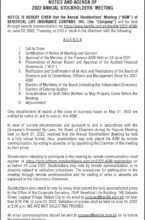Worker repeatedly discredits his coworkers

I’m a manager with five direct reports, including Raffy (not his real name), the most senior person in the group. The trouble is his tendency of belittling every move of his junior work colleagues. At every opportunity, Raffy would come in to my office to complain about many trivial issues like reporting how long they take their coffee or meal breaks. At one point, he came to my office complaining about one worker’s tardiness. Fortunately, his co-workers don’t know anything about his complaints. How do I handle the situation without antagonizing Raffy? — Pink Star.
There are two possible reasons for Raffy’s treatment of his colleagues. One is attention-seeking. It is possible that he wants a raise or a promotion even if he knows he doesn’t deserve it. He could also be deflecting the focus away from him because he can’t prove his worth. Incompetent people do that so the attention is removed from them.
Which one is the most likely cause of Raffy’s actions? I’d like to believe that Raffy is blaming or criticizing others as a cover-up for his own inadequacies or mistakes, as a sort of defense mechanism. He’s trying to muddy the waters by diverting your attention to others.
“Blaming others,” according to Arash Emamzadeh in Psychology Today (2023) “is more common in those who are experiencing negative feelings and are unable to regulate their emotions.”
REMEDIESWhat should you do? Every time that Raffy comes to you to complain, cut him off right away. Tell him that you can arrange for a private meeting with him in your office or in conference room to discuss all the things you’ve assigned him. Seek an update of what he has accomplished so far. Make this a habit whenever Raffy complains about his colleagues, so he’ll get the underlying message. Then proceed as follows:
One, acknowledge all the information that he’s giving you. While you appreciate the help he’s extending to you, emphasize that you don’t have enough time to verify all the information. In this age of fake news and disinformation, say that you abhor receiving exaggerations and untruths.
Two, talk to each one of your direct reports. Probe for their version of events without divulging that the complaints came from Raffy. This is what I would call a quick but casual engagement dialogue to explore the workers’ issues or challenges in performing their jobs. The objective is to address their immediate concerns before they become major issues.
Three, have a bias for concrete work performance. Remain steadfast that as long as there are no workers crossing the line as defined by the company’s code of conduct, you’re willing to ignore minor issues, as long as they deliver concrete results. Let him know that you’re very particular about meritocracy.
Say that taking coffee breaks is not necessarily a bad thing as long as the workers are trying to solve work issues even away from their work stations.
Four, arrange for a weekly department meeting. The ideal approach is end-of-the-day reporting. If that’s not possible or practical, require all your workers to submit a weekly one-page accomplishment report highlighting the tasks they have completed. This report must contain the weekly goals, status (achieved versus pending), timelines, estimated budget spent and the challenges encountered. Assign each worker to deliver an overview of all reports on a weekly rotation basis starting with Raffy, as the most senior.
Five, assign special projects to each worker every week. These may include waste elimination projects, cost efficiency initiatives, or anything to do with making their work easier. Require each worker to achieve at least 15% improvement from baseline levels provided by human resources, accounting or purchasing. These tasks should keep everyone busy.
Last, emphasize that cooperation is required from everyone. Teamwork is imperative even in the context of constructive competition. No one should be declared a sacred cow, regardless of their length of service in the organization. Everyone must follow the same route and be judged in accordance with uniform parameters or performance standards applicable to all workers.
REPUTATIONEmamzadeh might describe Raffy’s defense mechanism as a “feature of mental illness” and recommended that “seeking therapy may be helpful as well.” However, I will not advise you to do that unless Raffy has become combative and disruptive to his co-workers. Rather, require all workers to undergo a certain personality test conducted by a third-party service provider under the pretext that you’re assessing them for a possible assignment.
Take positive steps to help improve Raffy’s reputation. You can start by recognizing his accomplishments and perhaps offer him up as a case study for doing an excellent job. Catching people like Raffy doing a good job is a difficult proposition but not exactly impossible. You can start by looking at Raffy’s small wins and congratulate him on those.
Bring Rey Elbo’s program called Superior Subordinate Supervision to your team. Or chat your workplace questions on Facebook, LinkedIn or Twitter or e-mail elbonomics@gmail.com or via https://reyelbo.com



